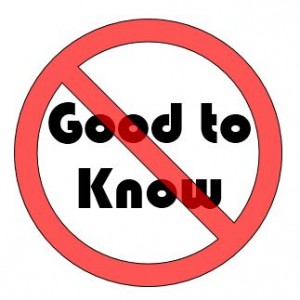It’s a term that often makes me cringe when I hear it: professional judgement. This is not to say that I disagree with it. To the contrary, I believe that it is at the core of what we do as teachers, as professionals. My issue with the term is that it tends to be misused and overused, misunderstood and underappreciated.
First, to pin it down. Damian Cooper in his 2011 book Redefining Fair describes professional judgement as “decisions made by educators, in light of experience, and with reference to shared public standards and established policies and guidelines.” I like this definition, but I also have two problems with it. Firstly, professional judgement in this sense has the potential to be a catch-all for any decision a teacher makes, especially since public standards and established guidelines are often as broad as a barn door. At times, I’ve seen colleagues invoke professional judgement as a defense for a decision or policy that has been challenged by students, parents, or other teachers.
Professional judgement cannot be any decision by a teacher, lest they become decrees from on high. We cannot as professionals, expect our decisions to be automatically correct ‘because I said so!’ What happens when two colleagues disagree? Is one more professional, so their judgement stands? Is neither wrong, meaning that every teacher is right but only in their own classrooms? No, to accept such a broad definition undermines the very nature of a profession.
My second issue with Cooper’s definition is that it frames professional judgement as an event, a moment in time. One could say, “I made a professional judgement,” in this context. I don’t like this because it feels again like professional judgement is invoked, or like it’s a tool brought out of storage to be used and then returned when you’re done making the decision. Should there be times when we aren’t making professional judgments? What kind of judgments are they? Unprofessional judgments just isn’t that appealing. No, we as teachers ought to always be professionals, meaning that professional judgement must be more than simply a decision.
Quebec’s Ministry of Education in 2006 produced a document on assessment, Value Assigned to the Professional Judgement of Teachers, that I feels better points to professional judgment. It states: “Judgement consists of analyzing and summarizing information that has been collected about student learning…. Making a judgment is not the result of compiling data. It cannot be reduced to adding up the different marks a student has obtained…”
By the way, this is a great document, and I recommend others read it. It’s in a Q&A format and really speaks to the sometimes uncomfortably subjective aspect of our profession. I also like this definition because it better embraces professional judgment as a process and not an event. Between formative and summative assessments in the classroom, professional judgement is always taking place. But I don’t like the focus on assessment only, which is where most writers on professional judgement like to sit. Teachers don’t only professionally judge when they grade. What are we doing when supervising the playground?
The Ontario Ministry of Education’s Growing Success: Assessment, Evaluation, and Reporting in Ontario Schools (2010) has a more detailed definition that I prefer. Professional judgement is:
informed by professional knowledge of curriculum expectations, context, evidence of learning, methods of instruction and assessment, and the criteria and standards that indicate success in student learning. In professional practice, judgement involves a purposeful and systematic thinking process that evolves in terms of accuracy and insight with ongoing reflection and self-correction.
I really like this definition because it encompasses the breadth of judgments we make in a day and places it as a process rather than an event. It also point towards the early days of the term ‘professional judgement’ in the 1980s and 1990s when standard thinking of instruction was questioned by critical thinking proponents, and the validity of psychometrically based assessment tools were being challenged in favour of performance tasks.
At the time, many professions struggled to define the concept. In 1990, Peter Facione offered a definition in his highly influential report to the APA, Critical Thinking: A Statement of Expert Consensus for the Purposes of Educational Assessment and Instruction, that encompasses the spirit of what it means, not only to have professional judgment, but to be a professional altogether. He defines professional judgment broadly, as:
a goal-oriented decision-making process carried out in the interest of one’s client wherein one gives reasoned consideration to relevant information, criteria, methods, context, principles, policies, and resources.
Professional judgment is rooted in experience, continuous training, and evidence. It is also testable through the litmus of “in the interest of one’s clients”, which for teachers, often means our students. We can ask our colleagues why they have made a particular choice, and should expect an answer that reflects the core of professional practice. Has it worked in the past? Is it founded on principals or teachings learned in PD? Did it actually have a positive impact?
We as professionals cannot always be right, nor should we ever expect to be. But, we should be always improving, refining, and growing. Professional judgment should reflect this process. Professionals should embrace it.

